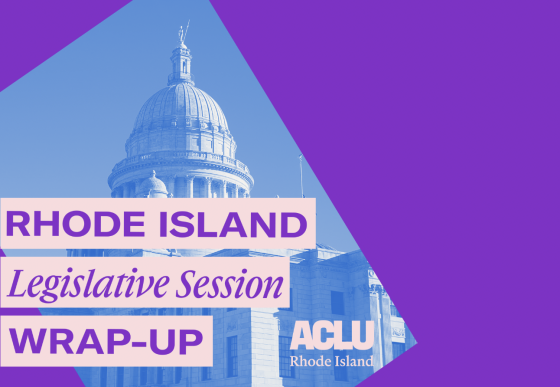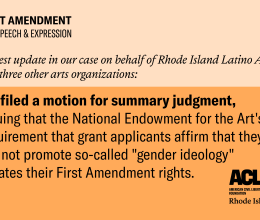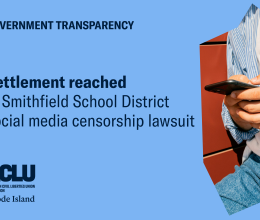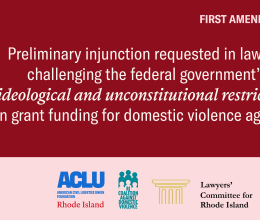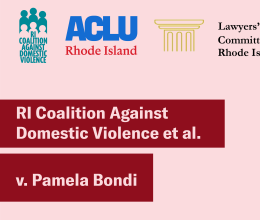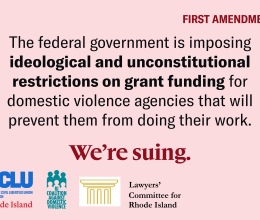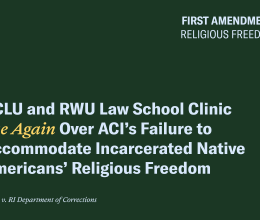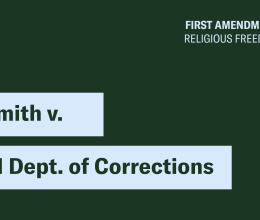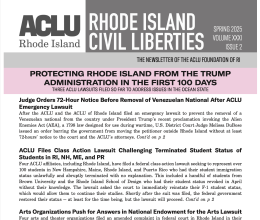The Rhode Island ACLU today criticized the “criminalization of student thought” as exemplified by a story in today’s Providence Journal, describing a middle-school student in West Warwick who was visited by police and the Secret Service because of an essay he wrote.
According to the article, the student’s one-page essay – in response to an assignment to describe a perfect day – involved doing violence to President Bush and various corporate executives. Police officials, asked by the school to investigate, concluded that the hyperbolic comments did not amount to criminal conduct, but nonetheless called in the Secret Service to interview the student and school officials. The article notes that the Secret Service investigation is ongoing, and the student, though not suspended, is temporarily barred from school.
RI ACLU executive director Steven Brown said today: “The information that has been publicly released about this incident makes abundantly clear that the student was engaged in a rhetorical, if angry, exercise of speech. Although it may have been appropriate for the teacher to share the essay with the school social work staff, the decisions to also involve the police and the Secret Service marked a significant and inappropriate intrusion on the young student’s First Amendment rights.
“A Secret Service agent is quoted as suggesting that the essay was a ‘a cry for help.’ If so, we would suggest that being interrogated by Secret Service agents when it is perfectly clear no crime was involved is not the type of help the student needs. The involvement of law enforcement in response to a student’s rambling essay amounts to the criminalization of student thought and sends a disturbing educational message to other students – steer away from any violent themes in writing assignments, or else run the risk of being interrogated by the police.
“We commend those officials in the town who have recognized the essay for what it is, but as long as students must fear the possibility of police investigations for handing in rhetorical writing assignments, the school district’s educational mission is not being well-served.”
In a similar incident five years ago, the ACLU successfully represented a Johnston high school student who was summarily suspended from school for handing in a “free write” composition that school officials claimed contained “suicidality, homicidality, mood concerns, non-bizarre delusions of grandeur and narcissistic themes.”

